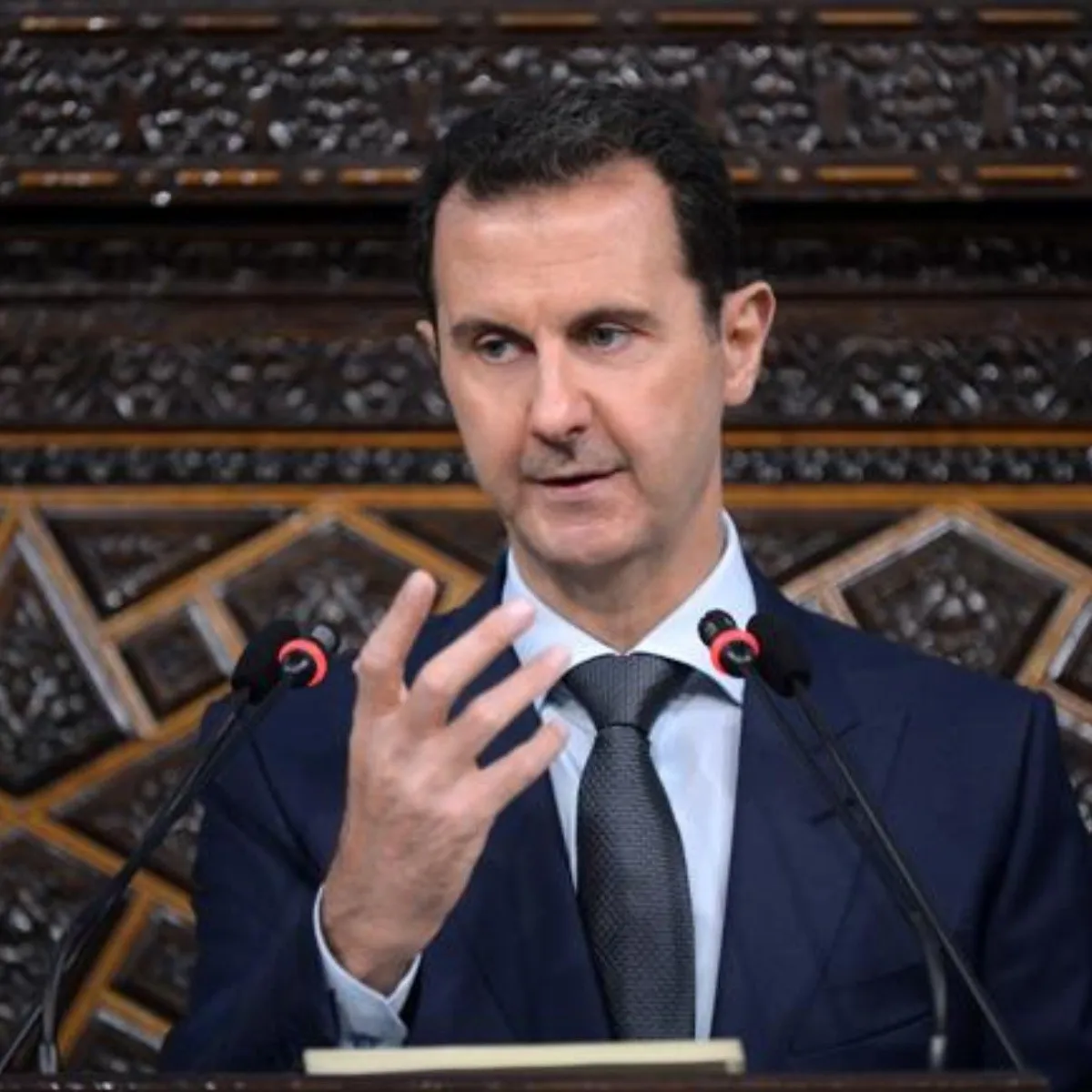Bashar Hafez al-Assad (born in Damascus, September 11, 1965) is the current president of the Syrian Arab Republic, ruling since July 17, 2000 after succeeding his father, Hafez al-Assad. He has also been the president of the Syrian Arab Socialist Ba'ath Party since July 24, 2000, also upon succeeding his father.
Al-Assad graduated from Damascus University Medical School in 1988, and began working as a military doctor in the Syrian Arab Army. Four years later, he attended postgraduate studies in London, specializing in Ophthalmology. In 1994 his older brother, Basel, was killed in a traffic accident. Bashar returned to Syria to resume his brother's role as heir apparent. He entered the military academy, and took charge of the Syrian occupation of Lebanon in 1998. In December 2000, Assad married Asma al-Assad, a computer science graduate and economic analyst at Deutsche Bank and JP Morgan.
At the beginning of his mandate, he proposed a policy of democratic change and a liberal economic opening. After 2012, he revived his liberal policies by promoting privatizations and winning new international partners such as China. He also started to promote tourism on the Syrian Mediterranean coasts.
Faced with the threat of the idea of preemptive war carried out by the US administration, the instability in Lebanon (where Syria maintained a strong military presence) and the constant tensions with neighboring Israel, Bashar al-Assad tried to have a reformist discourse that could satisfy the wishes of the European Union and the United States.
Since 2011, with the beginning of the Syrian Civil War, different Arab countries, the European Union, the United States, Turkey and other governments have demanded the resignation of Bashar al-Assad, while governments of other countries such as Iran, Russia, China, North Korea, Venezuela, Bolivia, Ecuador and Cuba condemn or do not support foreign intervention or a change of government in Syria.
Today he is still the President of Syria and the government controls the majority of the country, thanks mainly to Russian support and intervention in the war against ISIS, and is slowly being accepted by international organizations such as the Arab League and the UN, which had denounced him at the beginning of the civil war.
Megathreads and spaces to hang out:
- ❤️ Come listen to music and Watch movies with your fellow Hexbears nerd, in Cy.tube
- 💖 Come talk in the New Weekly Queer thread
- 💛 Read and talk about a current topics in the News Megathread
- ⭐️ August Movie Nominations ⭐️
reminders:
- 💚 You nerds can join specific comms to see posts about all sorts of topics
- 💙 Hexbear’s algorithm prioritizes comments over upbears
- 💜 Sorting by new you nerd
- 🌈 If you ever want to make your own megathread, you can reserve a spot here nerd
- 🐶 Join the unofficial Hexbear-adjacent Mastodon instance toots.matapacos.dog
Links To Resources (Aid and Theory):
Aid:
Theory:
now all fediverse discussion will be considered a current struggle session discussion and all comment about it are subject to be removed and even banning from the comm.
have all of you a good day/night 

what's this about "stalin didn't go far enough with purges" seriously what the fuck is this sentiment 'ah yes, it would've been better if the entire red army was hollowed out, 4 million casualties in 1941 was far too little!'
hey look at this giant pile of false convictions we found in the purges? what if it was bigger? like do people seriously believe the ills of the party in the 80's could've been alleviated by murdering more soviets in the fucking 30s?
But who is it who was saying these convictions were false? Khrushchev and a bunch of other revisionists decades after the fact? Why should I believe any of that.
Obviously just killing more people wouldn't have fixed things, that's kinda just a meme. Basically, IMO, although the Soviet Union was far more democratic than liberal "democracies" ever have been, even at the USSR's worst, It wasn't democratic enough. The great purges were, in many ways, a struggle of the lower level party members against the entrenched party bureaucracy, and not something personally directed by Stalin. Unfortunately, the bureaucrats ultimately won, the party became disconnected from the masses, and several decades later, the party elite dissolved the USSR against the will of the people. So what I wish had happened was that the people had won, not that more people were killed per se.
I should further point out that Stalin was pro democracy, and often in the later years worked through the state apparatus and not the party apparatus because of this. Ironically, because of this, he was than slandered as being undemocratic by the party revisionists.